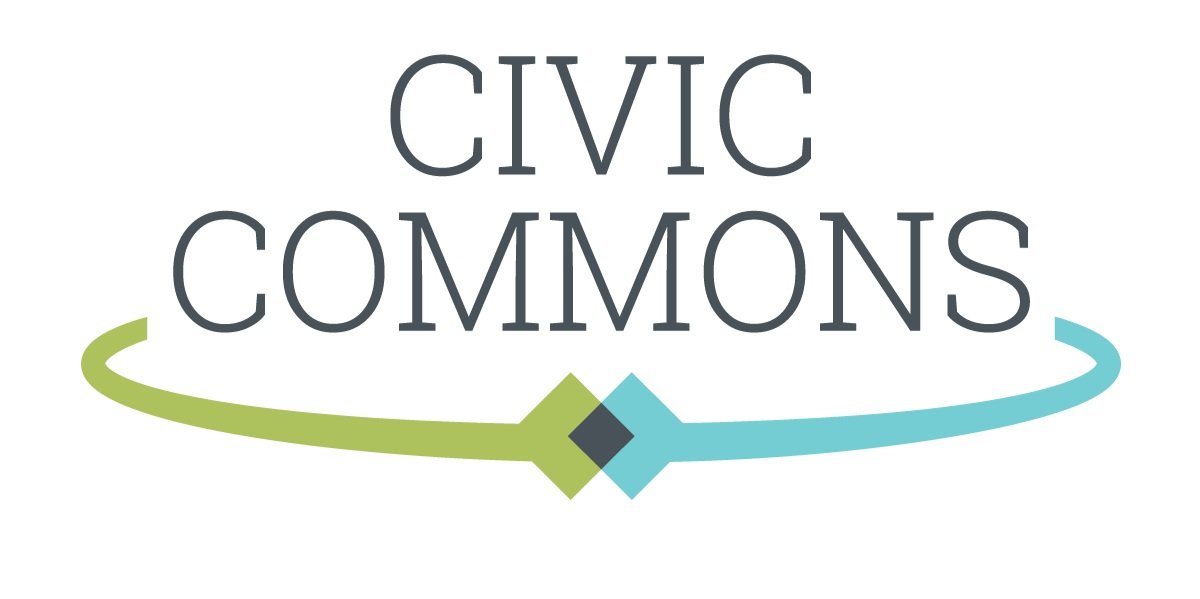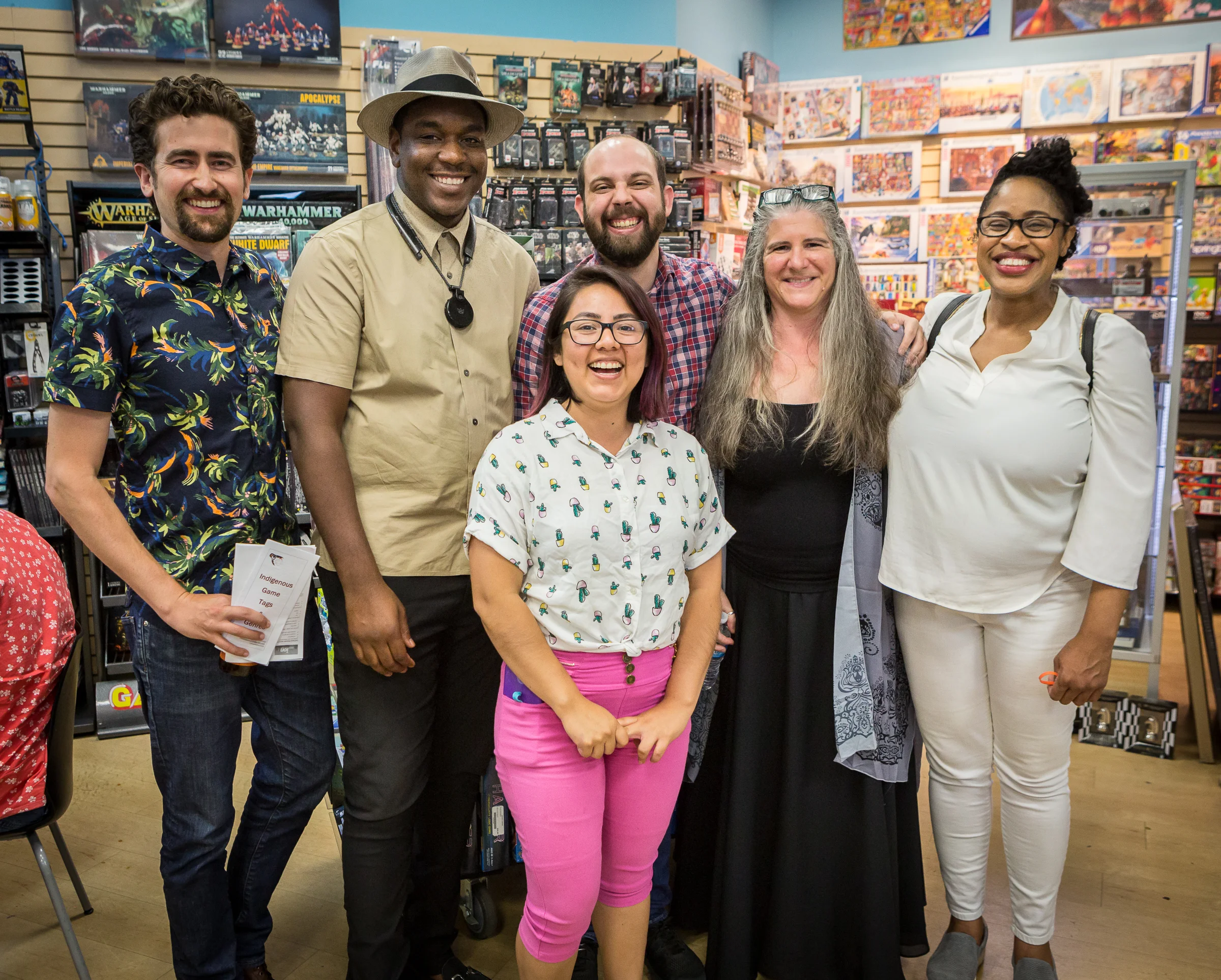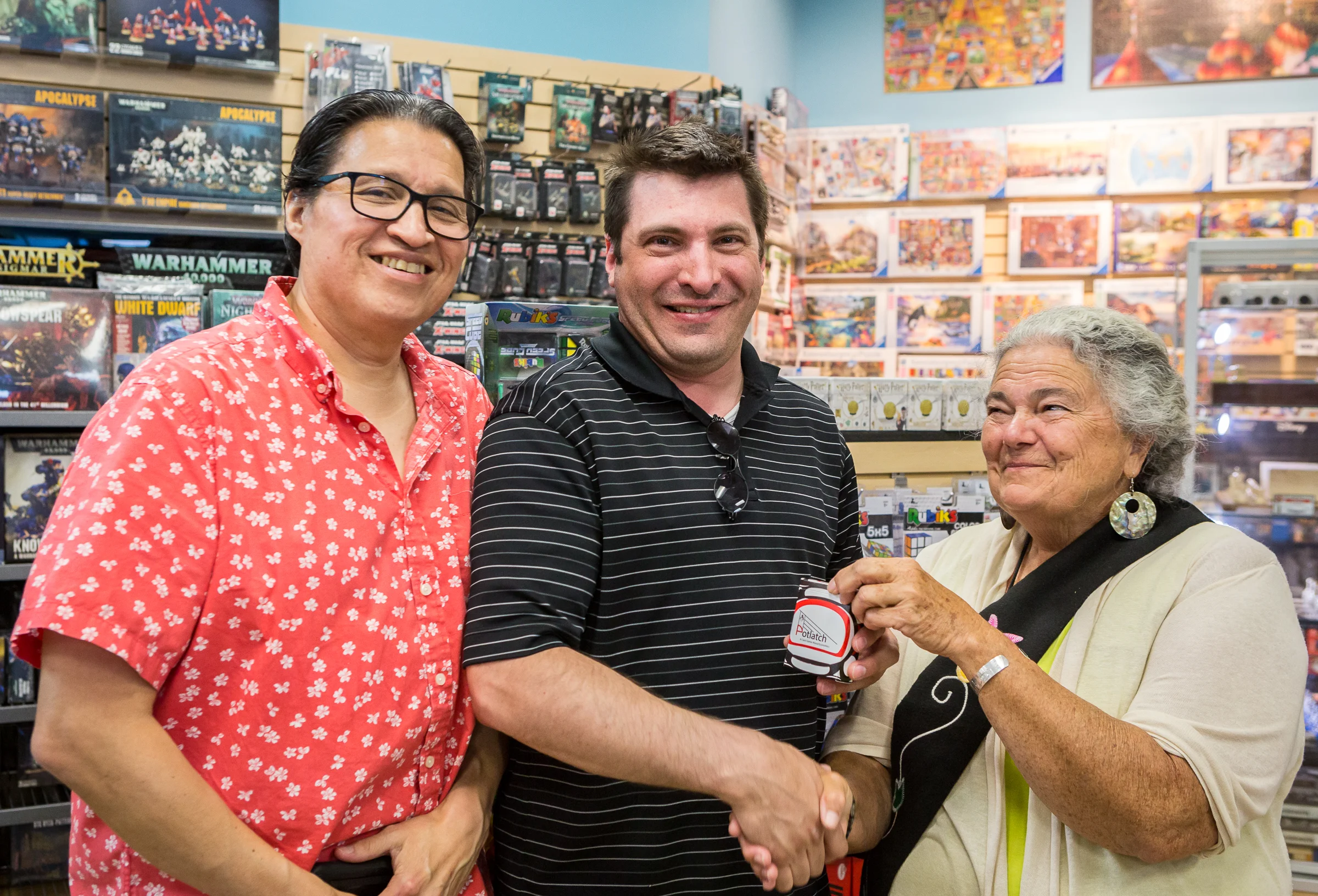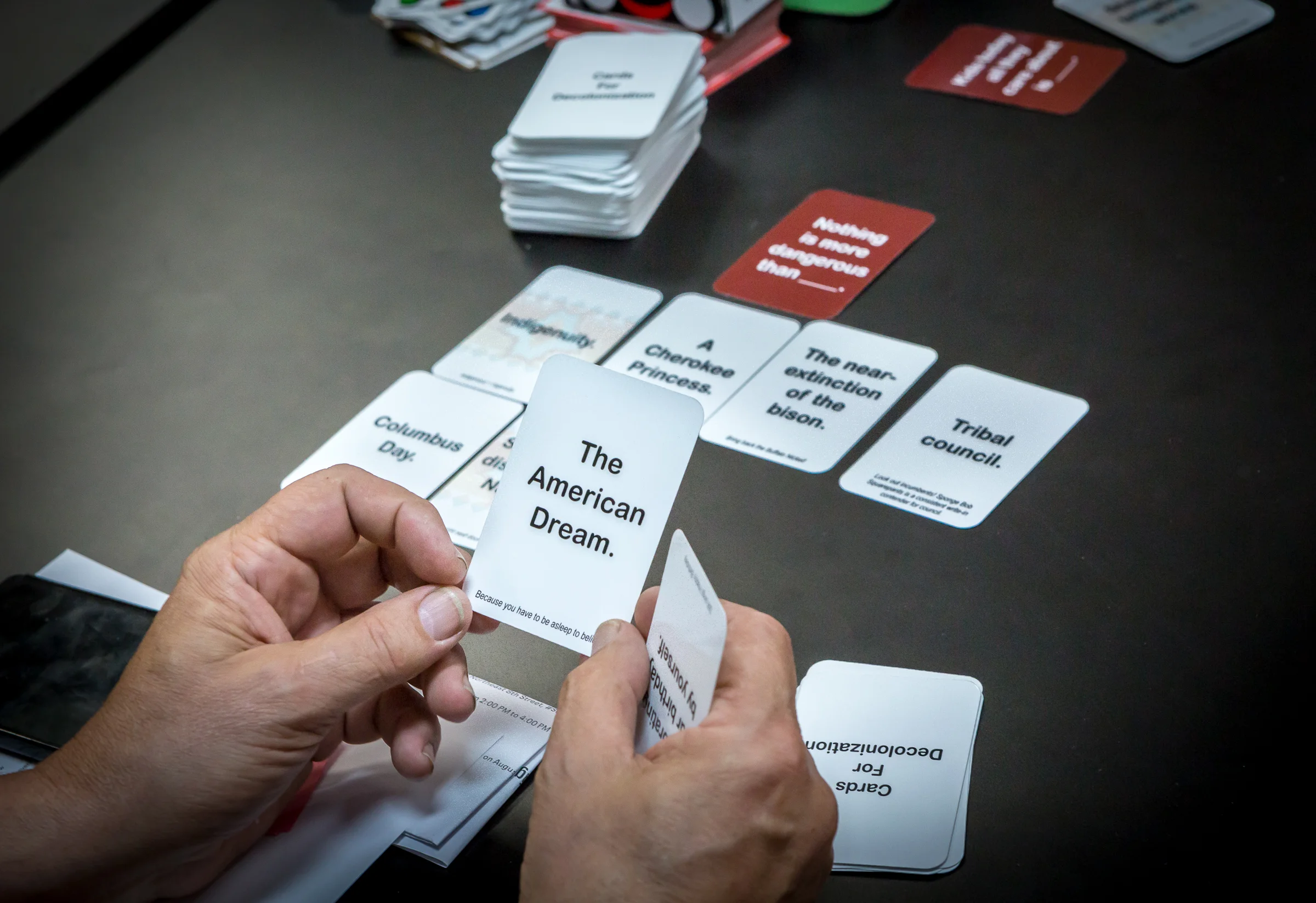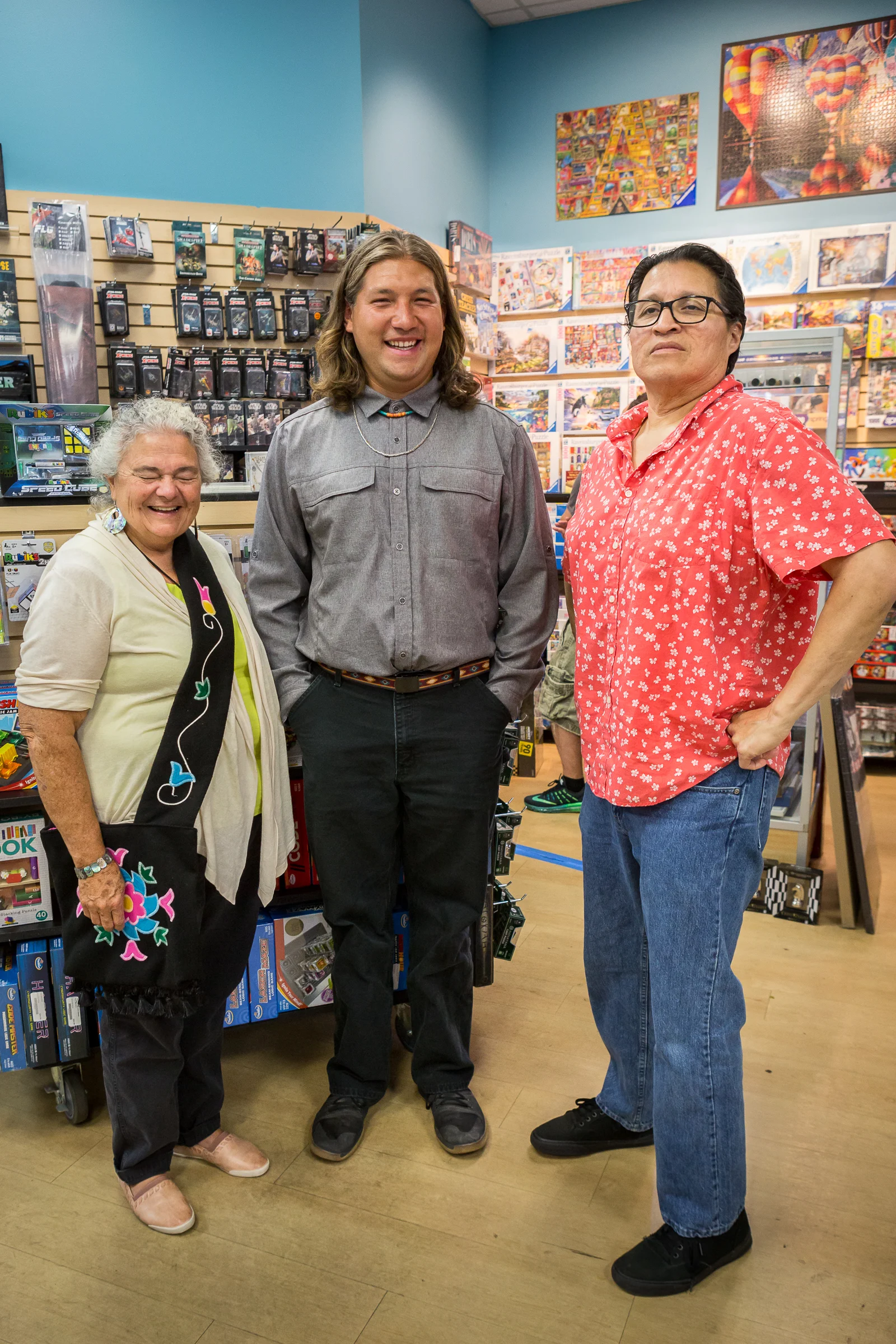Potlatch – Humor, Empathy and Connections at We Belong Here Game Night
Ion Collaborators: Finding New Ways to Connect
Uncle’s Games at Crossroads Mall was packed with gamers on a busy Saturday afternoon in Bellevue, laughing and passing cards, asking questions, reading rules, and connecting with strangers who share the same love of play and discovery.
But one table in particular wasn’t at Uncle’s by chance. A group from WTIA’s Ion Collaborators Crossroads team had invited fellow “Ion Collaborators” from other parts of King County and the general public to learn about community on the Eastside.
The Crossroads team is a small group of local residents and people working in tech, government and nonprofits who collaborate to learn about their community – and how to work together along the way.
The Crossroads team includes locals who live or work near Crossroads Mall, including a Microsoft employee, a funeral home owner, and a state department official. The team also introduced other King County residents to the Eastside, including Susannah Peterson, Branch Executive of the Matt Griffin YMCA in SeaTac.
“Working with professionals from different fields on a community-based project is very exciting,” said Susannah. Participating in the Ion Collaborators has helped Susannah discover how diverse Bellevue is, how locals are worrying about gentrification, and what action they’re taking to keep the community heterogeneous and welcoming. “We’ve spent a lot of time here over the past few months, and we wanted to introduce Crossroads to our other Ion Collaborators who are working in South Park and Skyway.”
From Community Interviews to a Game Night
The Crossroads team spent months conducting interviews with local community members and leaders to develop relationships and learn more about the Eastside. Through these conversations they met the N.D.N. Players Research Group – a self-described group of “gamers and academics and American Indians” who created Potlatch, an educational card game based on indigenous philosophies. Team members were inspired by N.D.N.’s approach and decided to leverage an appetite for playing board games they discovered in the Crossroads community by hosting a game night with N.D.N. The event would create a space where everyone could focus on socializing while learning about each other in a nontraditional way.
Show Your Hand and Step into the Realities of Someone Else’s World
The group set up four games at Uncle’s, each of which highlighted Native American culture and artistry, and drew in curious mall-goers. Giigoonh! used the classic structure of Go Fish to teach Ojibwe vocabulary. Role-playing game Ehdrigohr, takes place in a rich fantasy world inspired by the myths and folklore of tribal and indigenous cultures from around the world.
Invited by the Ion Collaborators, Jeanette Bushnell and Jonathan S. Tomhave led the group at Uncle’s through Potlach game play, sharing cards printed with descriptions in English and Northern Lushootseed (a Salish language) and talking about the radical way the game could “covertly change the way people think about economies and wealth.”
In the cultures of indigenous peoples on the Pacific NW coast, potlatch is a ceremonial distribution and re-distribution of resources, property, food, knowledge and wealth. Jeanette explained, “We tried to make this as realistic [to Potlatch] as we could, with the different game elements.”
Potlatch the game ties social status to ensuring that everyone has their needs met. During the game, players share “resource cards” as gifts to other players’ “house cards.” The game continues until everyone’s needs are met – but if they aren’t, the game ends with a “status loss” for every player.
The game table at Uncle’s was relaxed and talkative as players asked questions and delighted in having the right card to complete their neighbor’s hand. Potlatch had successfully reframed the table’s social interaction away from competition and individualism, and toward learning and collaboration. And the surprises weren’t finished – Jeanette and Jonathan had invited another guest to share with the group.
Avery Old Coyote, visiting from Native Teaching Aids in Montana, introduced the group to an educational game he designed called Cards For Decolonization. It was a game born out of both love and frustration.
Avery explained how much he’d enjoyed playing the hugely popular Cards Against Humanity, but how difficult he found the game’s use of painful history and injustices experienced by native peoples as fodder for laughter.
“That game can sometimes encourage players to ‘punch down’ at people who have less power than they do, for the sake of a joke. I wanted to create something that was ‘punching up,’ with laughter coming at the expense of people who use their power to exploit others. Satire is a time-honored coping strategy for indigenous peoples, and this game is in that tradition.”
In each hand of Cards For Decolonization, a tongue-in-cheek question is posed, and players share cards that complete the joke with a punchline. As the question is read in tandem with each of the “answers,” the group decides what combination is the funniest. (Example: Question “I spent all my per cap on______?” Possible answers “Frybread” “A pack of rez dogs” “Eat, smudge, snag”)
The table laughed uproariously as the game progressed, asked lots of questions (a “per cap” is a distribution of revenue from activities like casinos to tribal members, which often causes controversy around who can claim tribal membership), and had a moment or two of missteps as a player placed a punchline card that tipped the joke over the edge from funny to hurtful. Often the missteps resulted from ignorance of the nuances of culture and meaning embedded in a particular card. Avery noted that Cards for Decolonization created a space to learn about our shared history and dig into the sometimes harsh realities of rez (reservation) life. “Consider learning about the territory you are all occupying. Native people live some of these cards in your hand every day.”
Stepping into the realities of someone else’s world is the foundation of projects like the Ion Collaborators and We Belong Here. But there are often barriers to taking that first step. Susannah notes “there is a stigma behind asking for help – so maybe don’t set up your interactions to be about needs, set them up to be about making connections. Then, when people know each other, they help each other.”
Thought-provoking games like Potlatch and Cards For Decolonization are just one way to break barriers between people down. Using informal, social gatherings the games help people talk about tough issues and build connections through listening to each other. Ultimately, lasting and equitable change in our region depends on generating more empathy and inclusive collaboration at the person-to-person level.
All photos credited to Lisa Bontje
